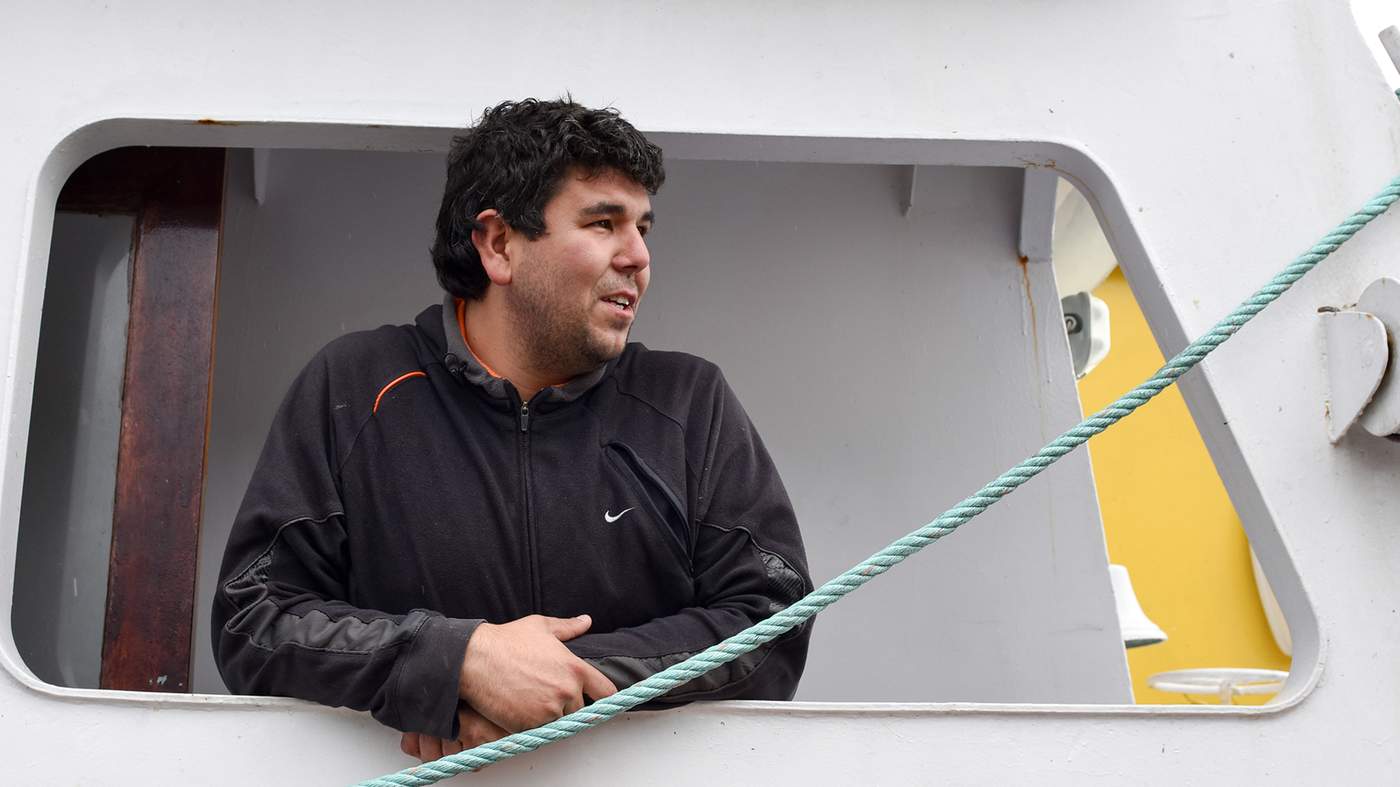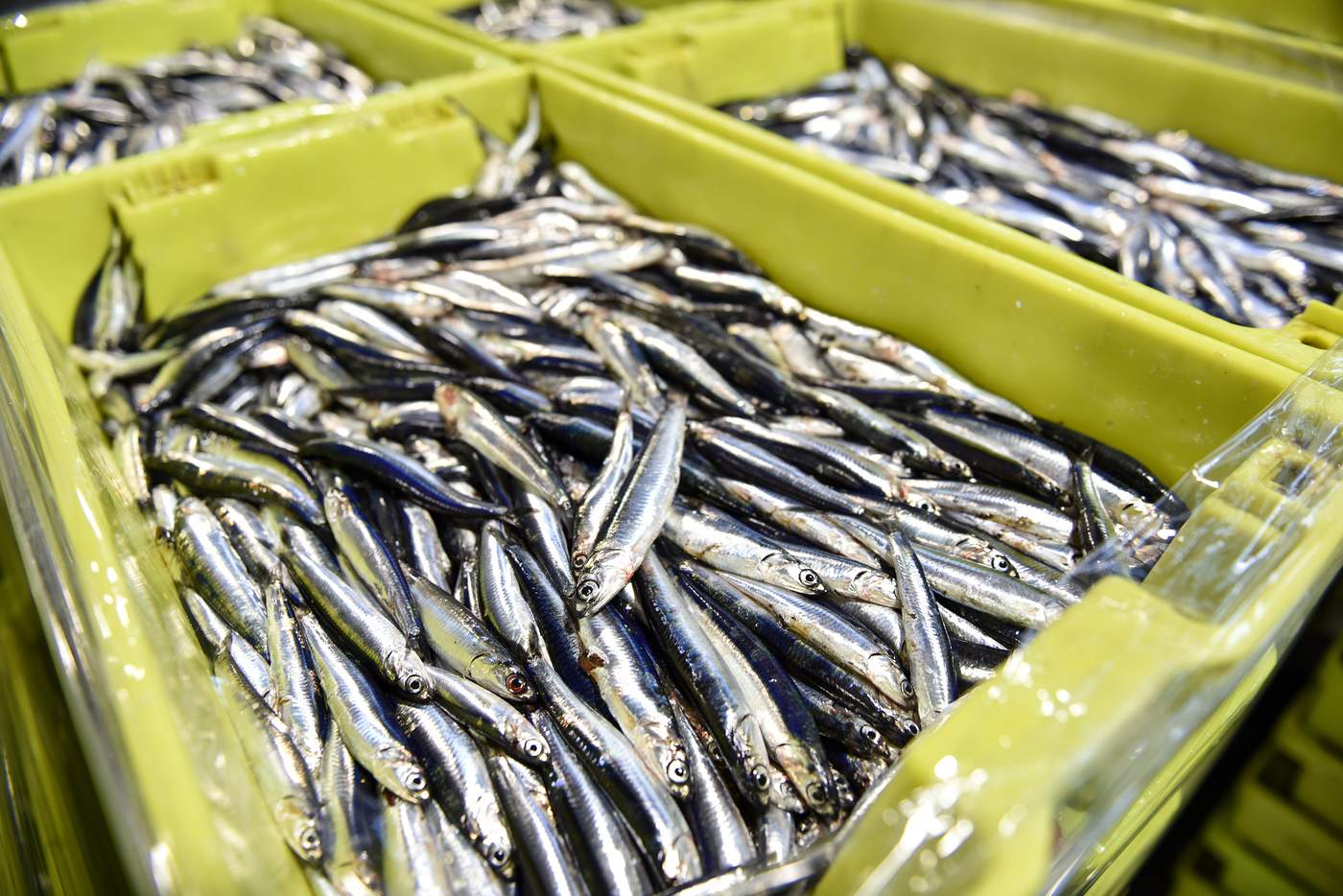Laredo: a small village that lies between Santander and Bilbao in the picturesque Bay of Biscay in Cantabria, North of Spain. It's a place where long, sandy beaches become green, rugged hills and is home to as many cows as humans.
It is also the home of "Messi" and "Ronaldo" San Martín. Every day they navigate their ship Nuestra Madre Juanita through the rough Atlantic seas, and every day they arrive back at land with their nets brimming with anchovies. This is why the brothers have become superstars in their domain, just like their namesakes.
The San Martín brothers are just one of many families who depend on the humble anchovy for their livelihood...
...and it's not only the men whose lives are defined by the small fish. Women's skillful hands mend broken nets. Everyone plays a part. A blessing in a region where one in five inhabitants are unemployed.
The situation was quite different in 2005. After years of overfishing and badly managed fisheries, stocks of the small fish were depleted and fishing in Cantabria was banned by the European Union.
Some 3,000 fishermen and more than 60 small, family-run companies were looking at a bleak future - a future without fish and no way to sustain their livelihoods.
Canning companies like Sucore, famous for its hundred-year old artisan method of preparing and tinning anchovies, had to avoid ruin by importing fish of a lesser quality from abroad until stocks recovered.
Short term sacrifices paid off. It took only five years for stocks to recover to the minimum required level. In 2010, the EU lifted the ban on fishing in the region but at the same time lowered the quota and called for improved fisheries management.
With this backdrop, a unique relationship was formed between the Spanish fishermen, a Swiss retail giant, their partners, and an international non-profit organisation.
Their collective vision was to go beyond merely bouncing back, but creating a situation where both fish and fishers would thrive.
Around this time, Swiss supermarket Migros had already made a commitment to sell 100% sustainable seafood by 2020.
Aware of this commitment, the Swiss group S. de Mendieta SA, their Spanish processor Sucore, and Laura Rodríguez, Spain & Portugal Program Director for the Marine Stewardship Council (MSC), met with the Spanish fishermen to discuss the necessary steps to achieve MSC certification.
S. de Mendieta SA's business practices aim to respect the environmental balance and marine sustainability and, in turn, the integrity of world fisheries and increased ecological wellbeing and abundance, so this mission made sense.
In 2014, Rodríguez, alongside representatives from Migros, their long-standing partner S. de Mendieta SA, and a well-known columnist for a Swiss newspaper travelled to Cantabria and met with the fishing fleet and the tinning company.
The trio envisaged a future of fishing that was to be both ecologically sound and economically profitable.
By 2015, numerous fishermen and fishing associations had learned about the need for sustainable fishing and understood the MSC's robust standards. Thanks to the efforts of the fleet, alongside regional governments, scientists and industry, stocks had not just recovered but were thriving. The fleet then became the first European anchovy fishery to receive MSC certification.
The result? Migros became the first retailer to offer MSC certified anchovies from Cantabria. With 97% of their seafood now coming from sustainable sources, Migros are very close to fulfilling their promise: sustainable fish only for Swiss consumers and a sustainable future for the anchovy, Cantabria's most famous export.
“We’ve got this amazing country, those beautiful beaches, the wild sea, and we’ve got fishing. This is a lot, but it’s all we’ve got. If the younger generation wants to remain in this amazing place we have to change our way of thinking and plan towards a sustainable future.”
Engraulis Encrasicolus, the Latin name for the small, shimmering silver fish, is the reason Cantabria is a household name among gourmets. Skinned, boned, salted and marinated in (often organic) olive oil, it fetches a premium price on the market.
Celebrity chefs like Jamie Oliver and Bart van Olphen are big fans and advocates and have dedicated many pages to Cantabrian anchovy recipes in the hope of inspiring consumers to try this traditional product.
And it's not only the product that's traditional. In a place like Cantabria the division of roles is still firmly in place. While it's men who catch the anchovy, it's women who are employed by local tinning companies like Sucore to prepare them.
Only women are deemed to be skillful enough to manually remove skin and bones from the fish and to lay them into their bed of oil, perfectly preserved until yet another person discovers the secret of the Cantabrian anchovy.
Share this story:
More MSC stories
The MSC on Facebook
All images subject to copyright







